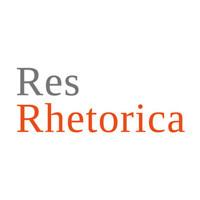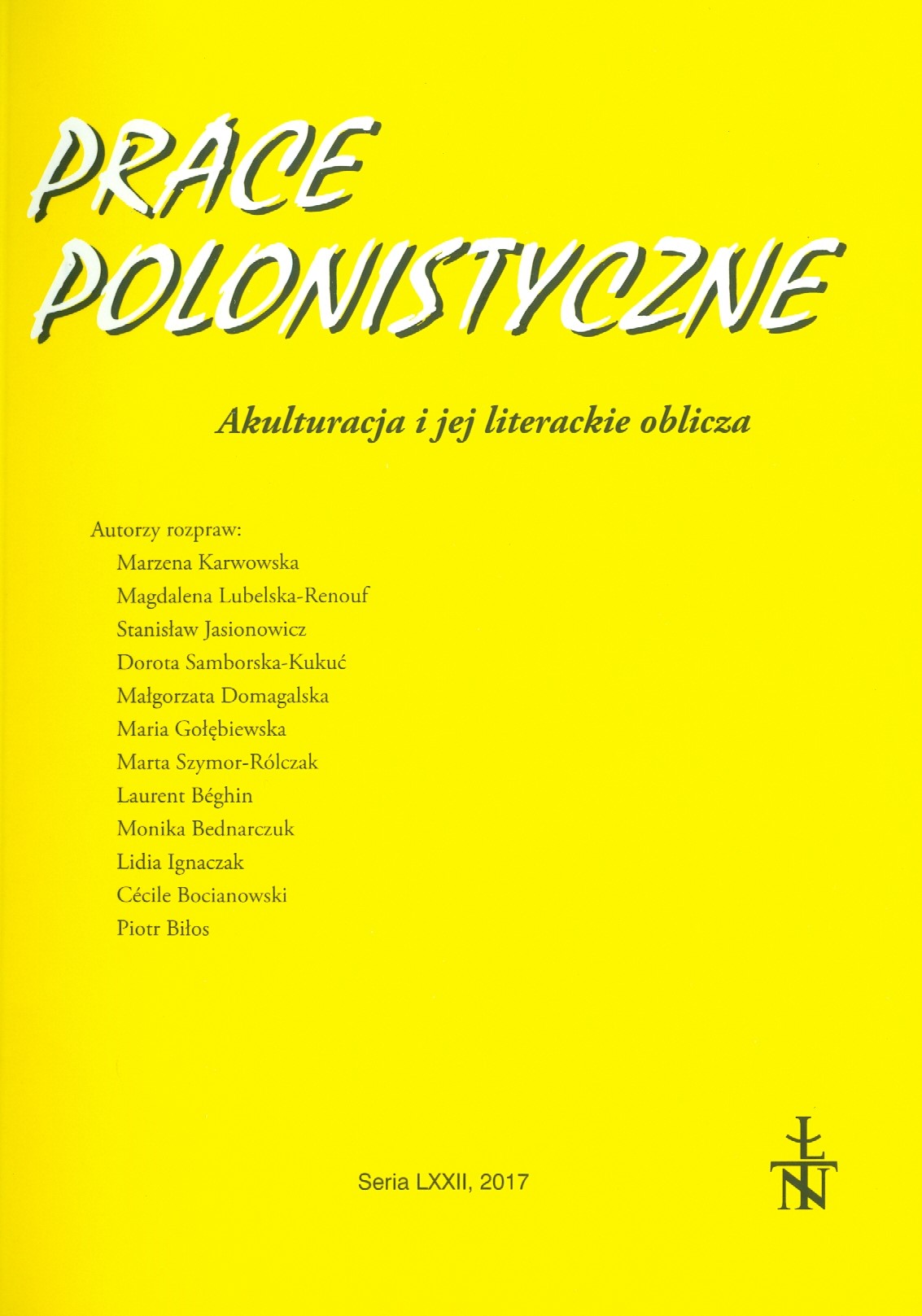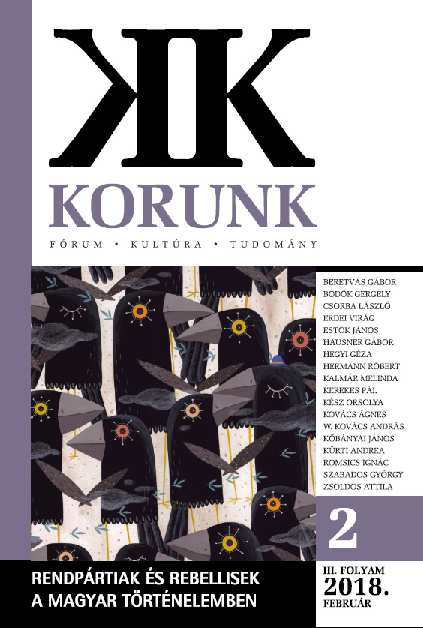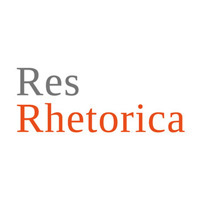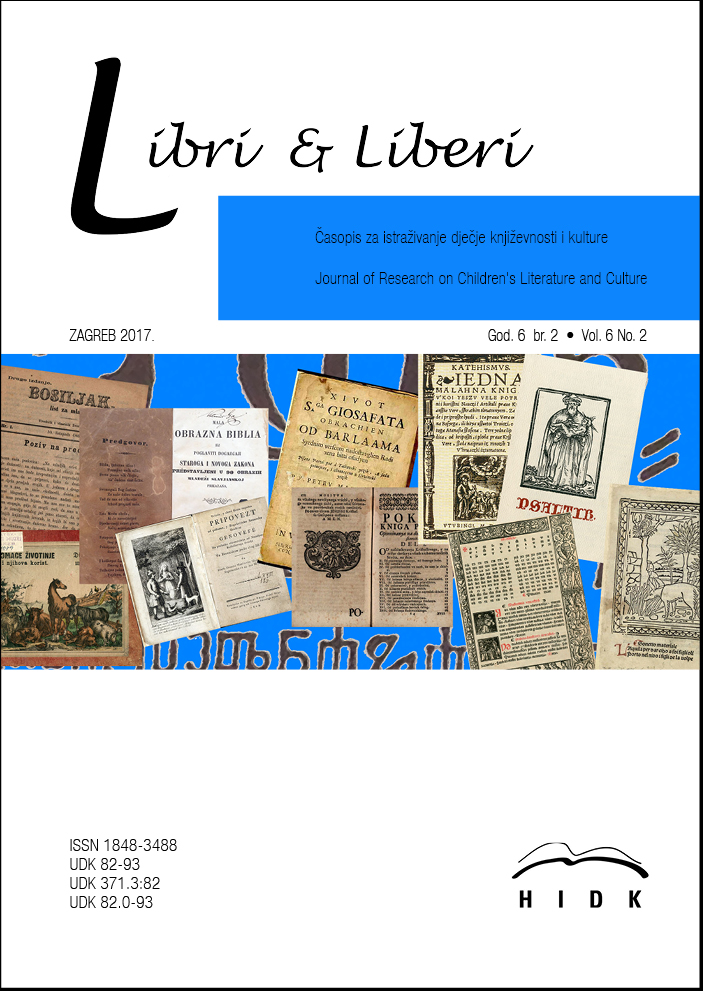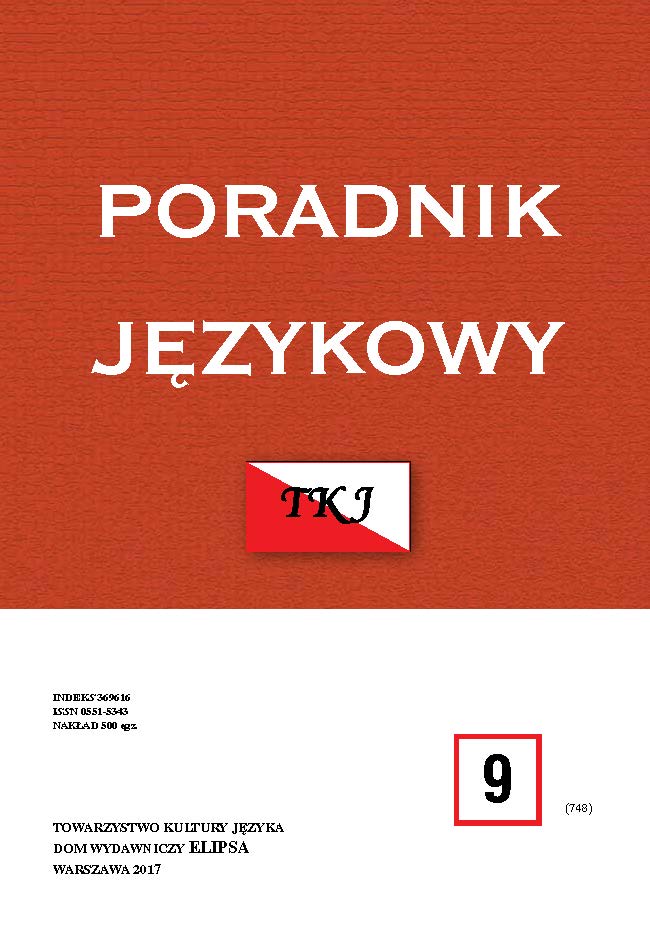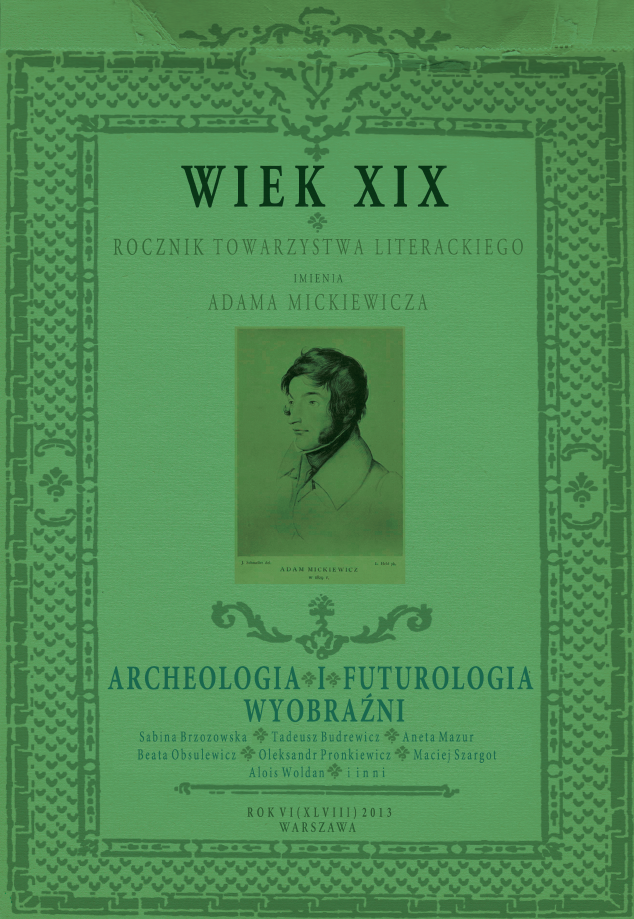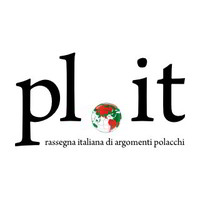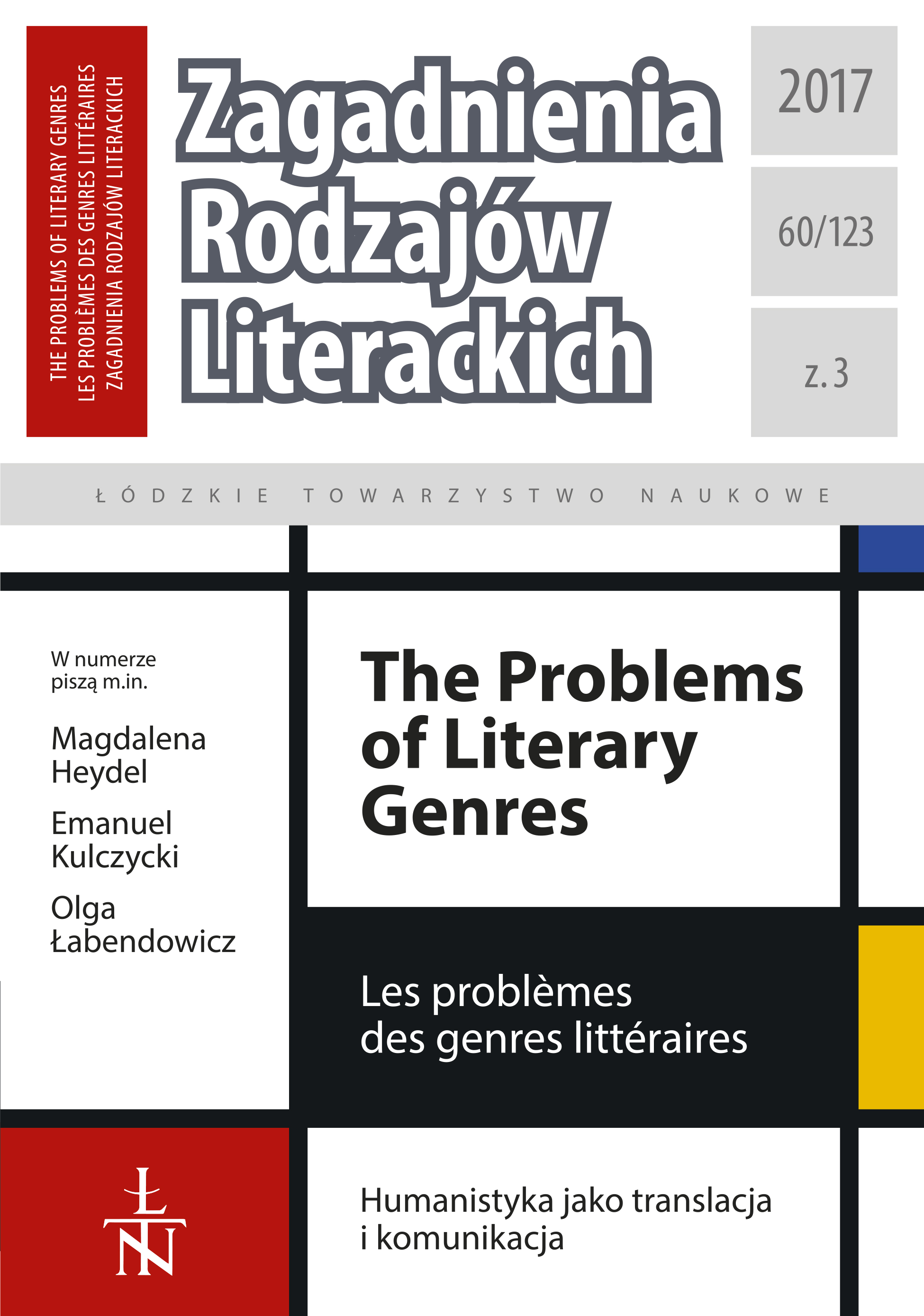
Obraz zaburzeń emocjonalnych w autonarracji K.R. Jamison
The aim of this work is to reconstruct the picture of emotional disorders as revealed in Jamison’s self-narration. The starting point was the question whether self-narration can be a source of information about the patterns of experience of disorder. The self-narrations expressed in the book An Unquiet Mind have been analyzed. The picture of emotional disorders has been reconstructed including the course of depressive and manic episodes and their alternations. The Jamison’s personal description of the experience of disorder was a valuable record of the perception of her own and the world.
More...
